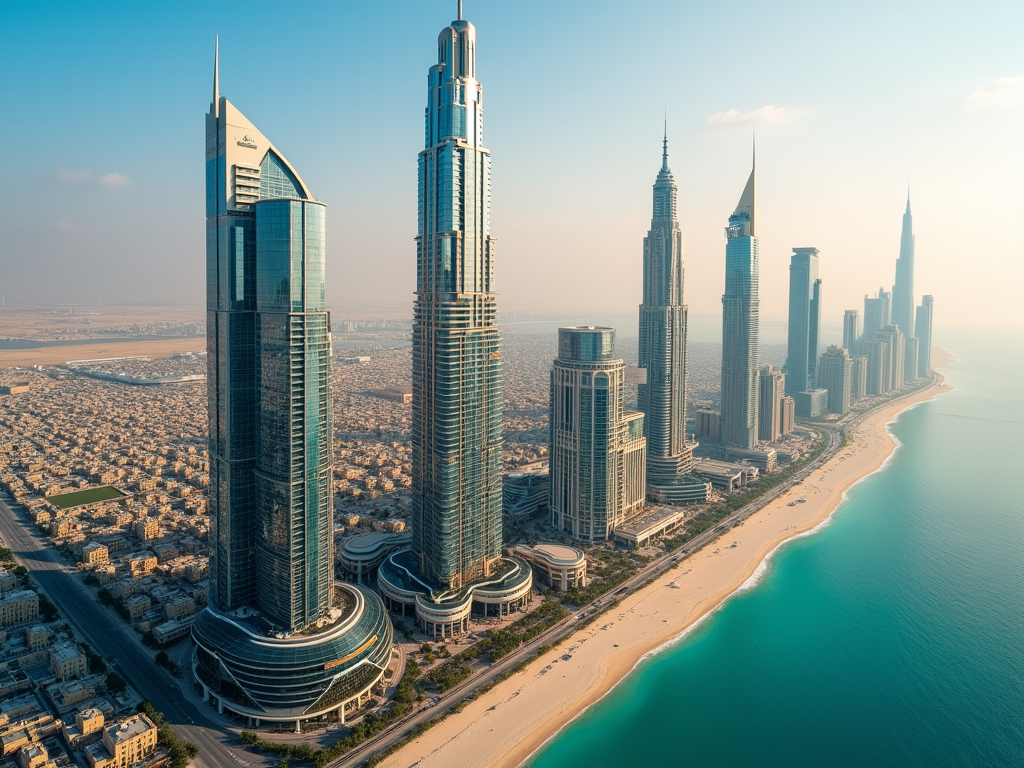Dubai’s real estate market presents a remarkable blend of opportunity and complexity for first-time investors. With its rapid growth, luxurious developments, and a variety of property types, navigating this landscape can seem daunting. However, understanding the local market dynamics, regulations, available financing options, and investment strategies can simplify the journey. In this article, we will explore the key factors you need to consider when investing in Dubai’s real estate, offering you the knowledge to make informed decisions.
Current Market Trends in Dubai

The Dubai real estate market has demonstrated resilience and adaptability, particularly in the face of global economic challenges. Currently, the market is experiencing growth in both residential and commercial sectors, drawing both local and international investors. Some of the significant trends include:
- Increased Demand for Luxury Properties: The demand for luxury accommodations remains high, attracting buyers from around the world.
- Focus on Sustainability: Eco-friendly developments are gaining traction as investors and buyers prioritize sustainable living.
- Technology Integration: Virtual tours and smart home technology are becoming standard offerings, enhancing the buyer’s experience.
- Affordable Housing Options: A rising demand for affordable housing is leading to new developments targeting the middle class.
Legal Framework and Regulations

Before investing in Dubai, it’s essential to understand the legal framework governing property ownership. Foreign investors are permitted to buy property in designated areas, often termed “freehold areas”, under the Dubai Land Department’s regulations. Key points to consider include:
- Property Types: Investors can choose from residential, commercial, and mixed-use properties, with varying ownership rights.
- Title Deeds: Once a purchase is made, a title deed is issued, confirming ownership and outlining the rights associated with the property.
- Investment Visa: Investors purchasing property worth AED 1 million or more may qualify for a residency visa, further incentivizing property investment.
- Off-Plan Purchases: Buyers can invest in off-plan properties and secure capital appreciation over time, although due diligence is necessary.
Financing Your Investment
Understanding the financing options available to you is crucial when investing in Dubai’s real estate market. Several financing methods can help first-time investors, including:
- Mortgage Finance: Local banks and financial institutions often offer competitive mortgage rates, typically covering up to 80% of the property value for expats.
- Payment Plans: Many developers provide flexible payment plans, allowing investors to pay in installments until the property is completed.
- Foreign Currency Loans: Some banks offer loans in foreign currencies, giving expatriates more flexibility in managing their finances.
- Real Estate Investment Trusts (REITs): Investing in REITs allows you to access Dubai’s real estate market without the need to purchase property outright.
To maximize your investment potential in Dubai, consider employing various strategies tailored to your financial goals and risk tolerance. Some effective strategies include:
- Diversification: Invest in different property types across various locations to minimize risk and enhance your portfolio’s performance.
- Research Location: Focus on emerging neighborhoods with growth potential, as they often provide better appreciation rates.
- Expert Consultations: Collaborate with real estate agents and investment advisors who understand the local market intricacies.
- Long-Term Vision: Real estate investment is often most profitable over the long term, so plan for 5 to 10 years ahead.
Conclusion
Investing in Dubai’s real estate market can prove to be a lucrative venture for first-time investors, provided they understand the market dynamics, legal requirements, and financing options available. By staying informed about the current trends and employing thoughtful investment strategies, you can navigate the complexities of this vibrant market and position yourself for success. Take your time, research thoroughly, and consider seeking professional advice to make the most of your investment in Dubai’s real estate landscape.
Frequently Asked Questions
1. Can foreigners buy property in Dubai?
Yes, foreigners can buy property in designated freehold areas in Dubai, allowing them to own property fully.
2. What is the minimum investment required to obtain a residency visa?
Investors must purchase property worth at least AED 1 million to qualify for a residency visa.
3. Are there any property taxes in Dubai?
Dubai does not impose property taxes; however, there are associated costs like registration fees and maintenance charges.
4. How can I finance my property purchase in Dubai?
You can finance your purchase through local bank mortgages, flexible developer payment plans, or investing in REITs.
5. What are the risks of investing in Dubai real estate?
Risks include market fluctuations, legal challenges, and potential issues with developer reliability, hence the importance of thorough research and due diligence.
